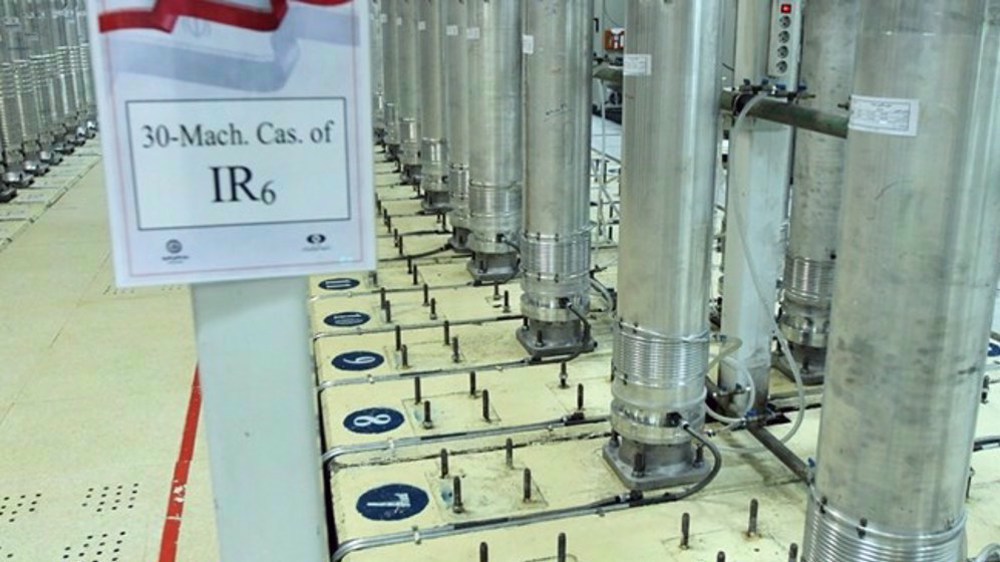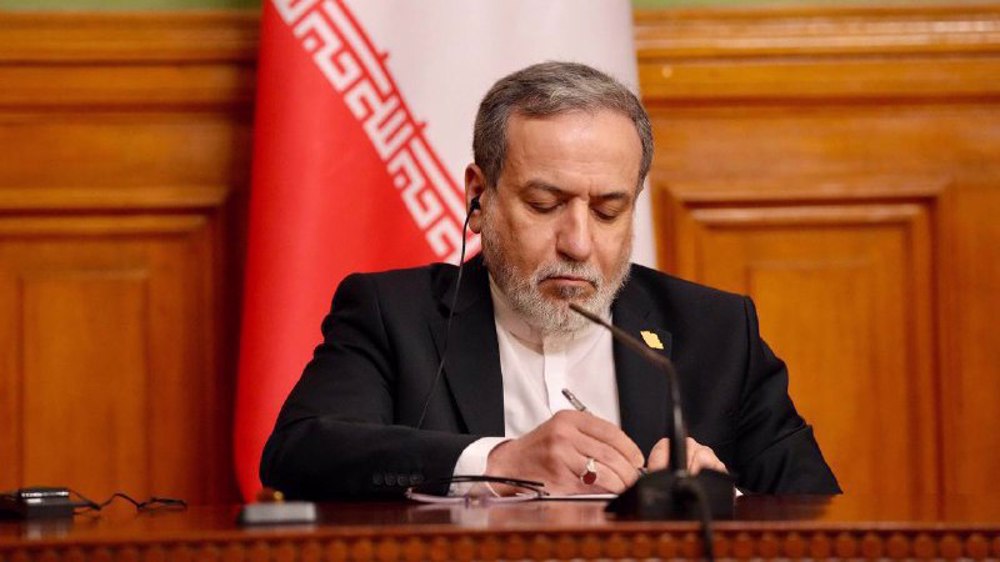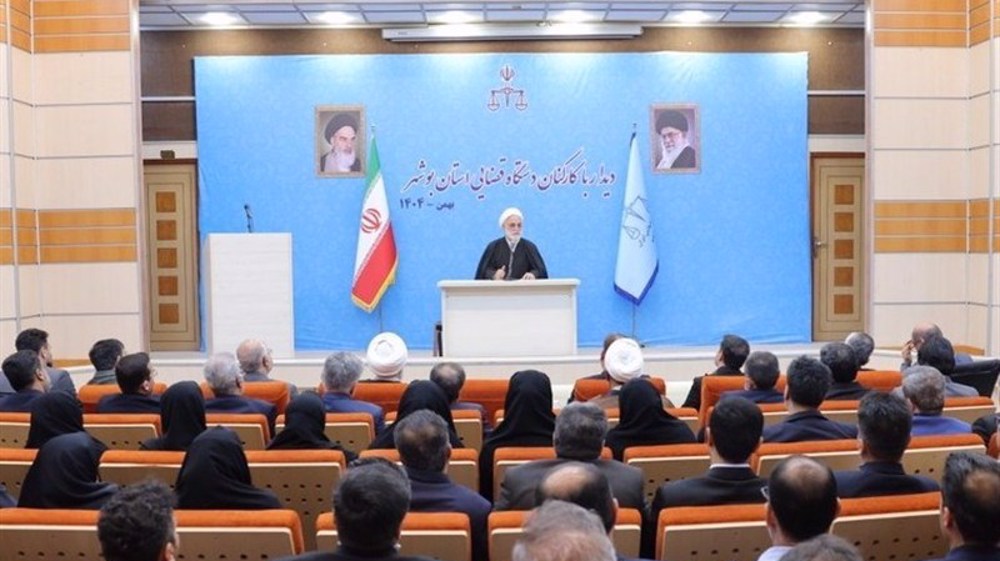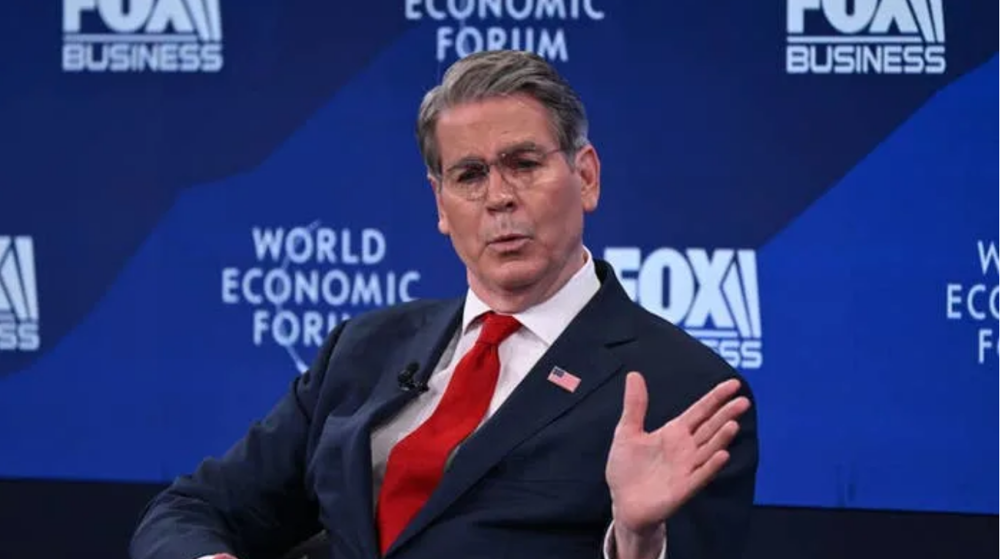Iran will continue enriching uranium to serve national needs: AEOI spokesman
As Tehran starts feeding gas into hundreds of advanced IR-1 and IR-6 machines, the spokesman for Atomic Energy Organization (AEOI) of Iran says the process of enriching uranium will continue to fulfill the country’s needs.
In remarks to Al-Mayadeen television network on Tuesday, Behrouz Kamalvandi added that the parties to the nuclear talks in Vienna were well aware that the AEOI was committed to implementing a parliamentary law aimed at countering the sanctions imposed on the country over its peaceful nuclear program.
According to the law, dubbed the Strategic Action to Lift Sanctions and Protect the Nation’s Rights, the AEOI has fulfilled a series of duties and tasks.
The official said the law obliged the AEOI to begin operating 1,000 IR-6 centrifuges, among other measures.
Iran had previously launched 500 of the advanced centrifuges and later completed the task by operationalizing 500 others, he said.
“Yesterday, we started injecting gas into the centrifuges,” he explained.
Kamalvandi, however, emphasized that Tehran had already informed the International Atomic Energy Agency (IAEA) of its nuclear measures.
Iran and the other parties to the 2015 nuclear deal, officially called the Joint Comprehensive Plan of Action (JCPOA), have been engaged in sporadic rounds of talks since last April to revive the JCPOA by bringing the US back into the deal.
The current crisis over Iran’s nuclear program was created in May 2018, when former US president Donald Trump pulled Washington out of the JCPOA and imposed tough economic sanctions against the Islamic Republic under what he called the “maximum pressure” policy.
While the Joe Biden administration agrees that the policy has failed dismally, it has not taken any tangible steps to deliver on its promise of repealing the policy, but rather, it has occasionally imposed new sanctions on Iran.
The 2020 law is a part of the remedial measures and a step-by-step strategy drafted by parliament to force the West into changing its policies toward Tehran.
It tasked the Iranian government to take certain nuclear measures such as increasing the level of its uranium enrichment and suspending the voluntary implementation of the Additional Protocol.
Iran’s Foreign Minister Hossein Amir-Abdollahian said on Tuesday that the recent decision to feed gas into cascades of new centrifuges was a response to the United States’ insane obsession with imposing new sanctions against the country.
He added that the “irrational” and “insane” sanctions the US has slapped on his country will not have an adverse effect on Iran’s progress.
Elsewhere in his remarks, Kamalvandi reaffirmed Iran's readiness to resume its commitments as per the JCPOA if the remaining parties to the deal return to their obligations.
Iran’s lead negotiator said on Sunday that Tehran is ready to swiftly conclude the Vienna talks on reviving the JCPOA and give the United States another chance to act responsibly toward its contractual obligations under the accord.
Ali Bagheri Kani, who also serves as Iran’s deputy foreign minister for political affairs, tweeted that the Islamic Republic has shared its “proposed ideas, both on substance and form, to pave the way for a swift conclusion of Vienna negotiations.”
EU Parliament halts US trade deal after Trump tariff threat
VIDEO | An unchecked presidency
VIDEO | Deportations strain Afghanistan’s fragile economy
‘Full-scale atrocity’: Iran security body reports 2,427 martyrs in US-Israeli-led riots
Smallest coffins are the heaviest: The three youngest victims of foreign-backed riots in Iran
Hamas warns of ‘systematic Israeli violations’ as Gaza ceasefire teeters
Israeli strikes kill 11 across Gaza, including children and journalists: Palestinian medics
US forces transferring Daesh prisoners from Syria to Iraq: CENTCOM










 This makes it easy to access the Press TV website
This makes it easy to access the Press TV website